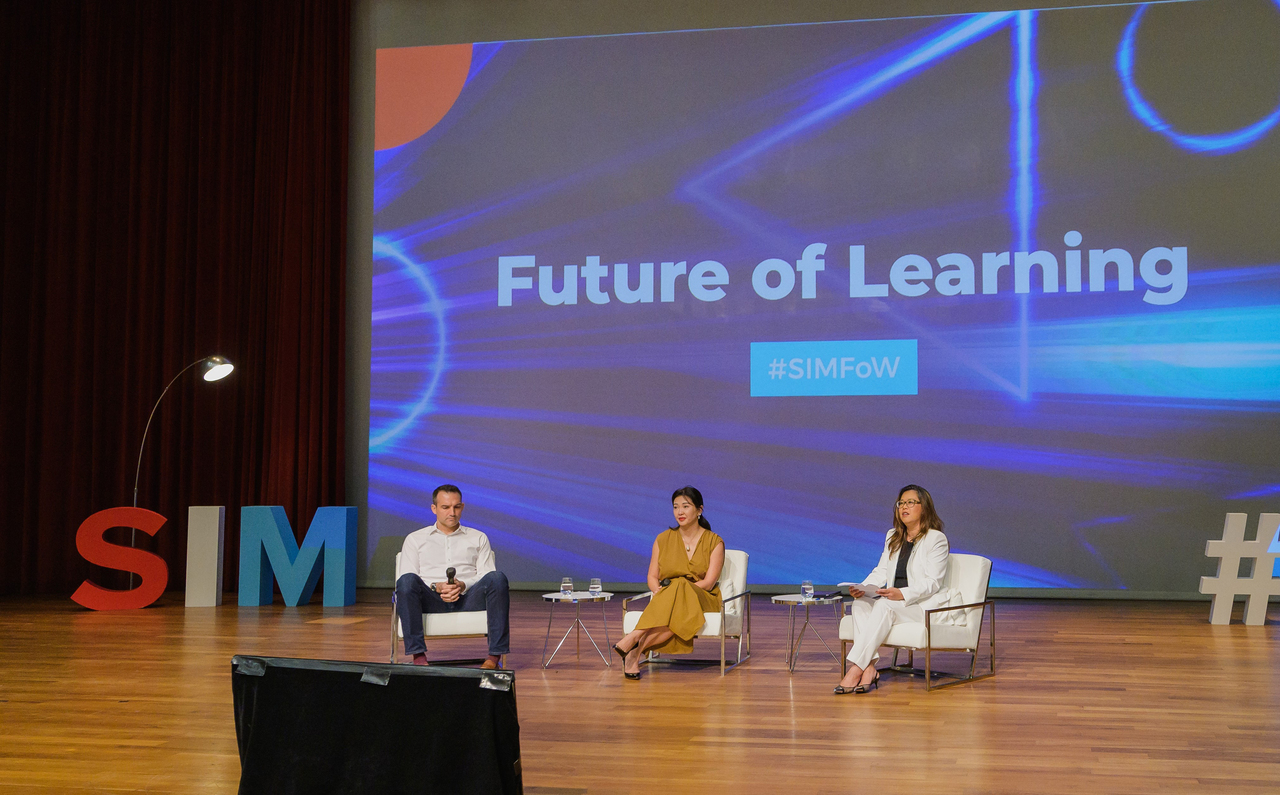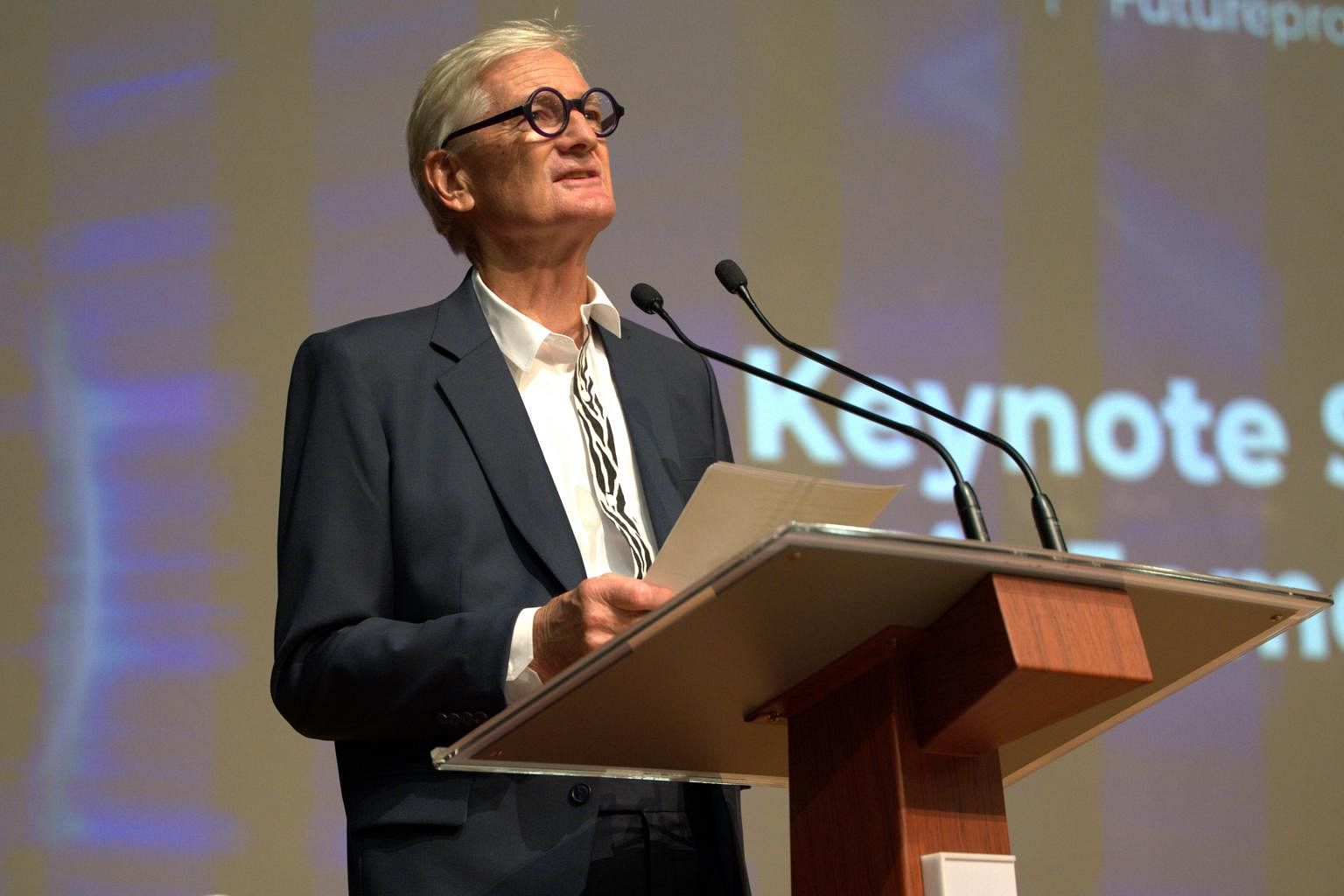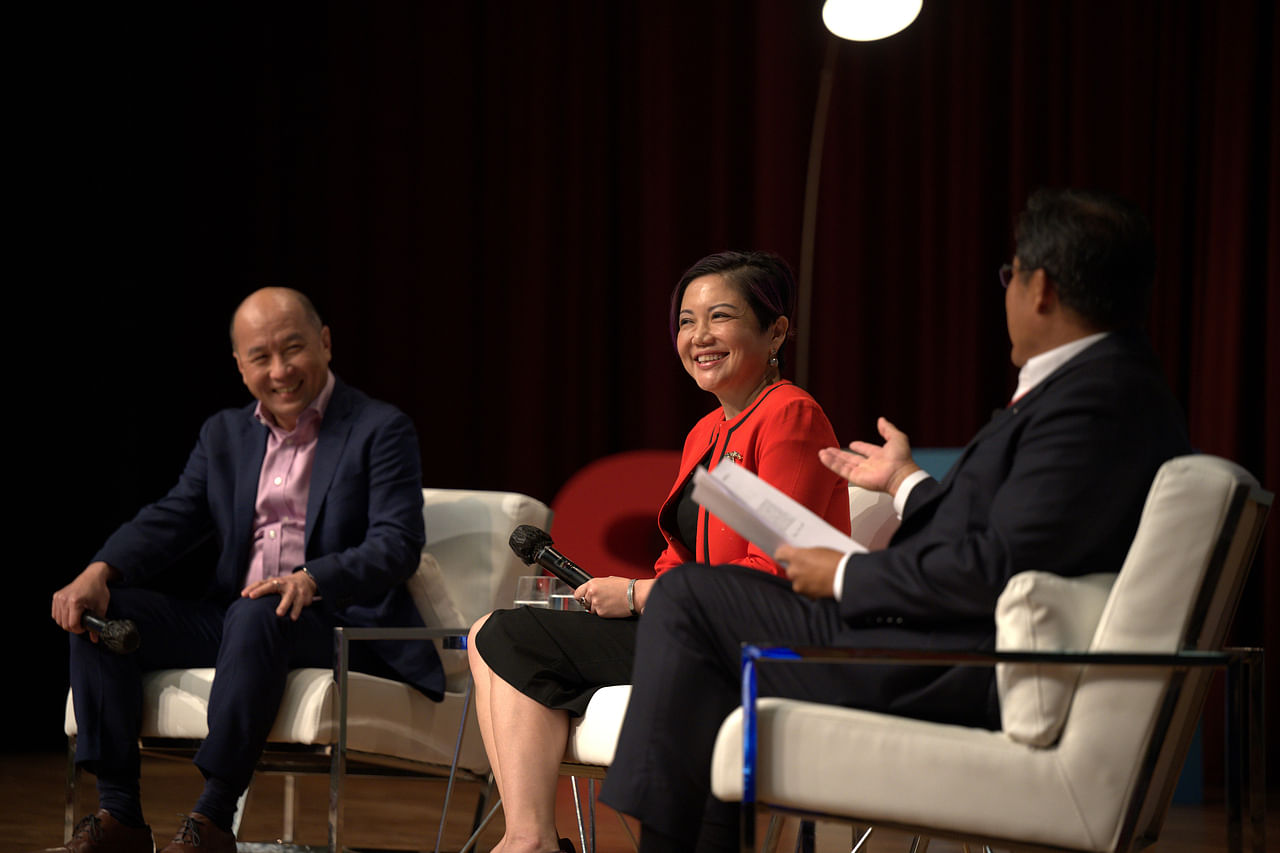Firms that help employees grow can better retain talent, says panellist at SIM forum
Sign up now: Get tips on how to help your child succeed

(From left) Dyson chief technology officer John Churchill and LinkedIn Asia-Pacific managing director Feon Ang on a panel moderated by SIM chief human capital officer Sara Yik.
PHOTO: SIM
Follow topic:
SINGAPORE - Companies that excel at helping workers change roles internally are able to retain them for more than five years, compared with an average of under three years for firms that struggle with doing so, according to a 2022 report on workplace learning by LinkedIn.
An analysis from March 2022 also found that 40 per cent of companies looking to hire are considering skills over traditional credentials like degrees when evaluating candidates.
This was up from 20 per cent from the year before.
Sharing these findings on Tuesday at a panel session on the future of work, Ms Feon Ang, LinkedIn's managing director in Asia-Pacific, said the platform's research shows that companies which are transforming workplaces into places of growth are able to retain talent for much longer than those that do not.
LinkedIn itself is trying out this strategy, said Ms Ang, adding: "We want to provide internal mobility opportunities for our people, so that they can create different jobs that fit into their aspirations."
The panel session on the future of learning, held at the Singapore Institute of Management (SIM), was part of a discussion on how employers can retain talent.
In his keynote speech, Sir James Dyson, chairman and founder of home appliance giant Dyson, said workplaces should be renamed "learning places".

In his keynote speech, Dyson chairman and founder James Dyson said workplaces should be renamed "learning places".
PHOTO: SINGAPORE INSTITUTE OF MANAGEMENT
To meet the demand for skills, Dyson set up a new institute five years ago in Britain, where its undergraduates work alongside engineers and scientists on real products.
"Their academic study has benefited from immediate practical application, and they have learnt through hands-on experience - to research, experiment, iterate, fail and try again," said Mr Dyson.
Tuesday's session was the first in a series on the future of work organised by SIM, which recently pivoted its operations to focus on programmes for professionals and businesses.
Education Minister Chan Chun Sing, the guest of honour, outlined in his opening address the trends in the way work is evolving.
He said that for workers, knowledge is increasingly becoming a commodity, which means students and workers must anticipate and understand future challenges and seek solutions ahead of time.
At a separate panel session on the future of work, Singtel Group chief executive Yuen Kuan Moon said that to deal with disruptions to industries, companies like Singtel have focused on preparing their workers.
In the last three years, it has helped 1,200 employees convert from one role to another as their jobs became obsolete, he said.

Singtel Group employs 13,000 people in Singapore and about 25,000 globally.
But employees must also play their part in being open-minded, said Mr Yuen.
"People are not ready for the future," he noted. "We need people who are not just able to continuously learn, but also be able to look at things from a different lens... even traditional jobs like accounting are evolving."
Through rapid changes in roles and jobs, what gives employees a sense of growth in their careers is ultimately a sense of purpose, said Microsoft Singapore's managing director Lee Hui Li.
She said: "At Microsoft, the purpose we talk about is how we empower every person and every organisation to contribute to the planet."

